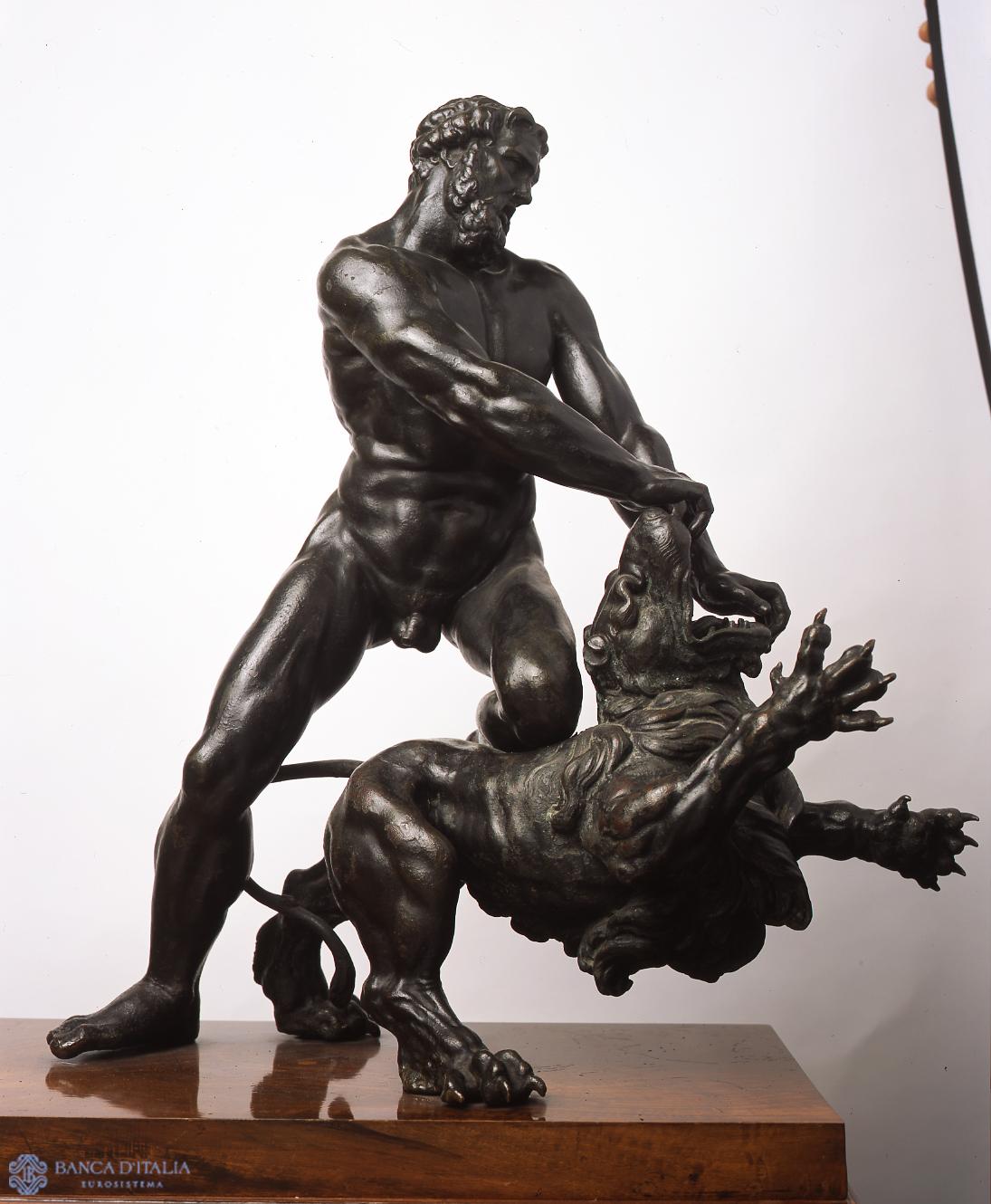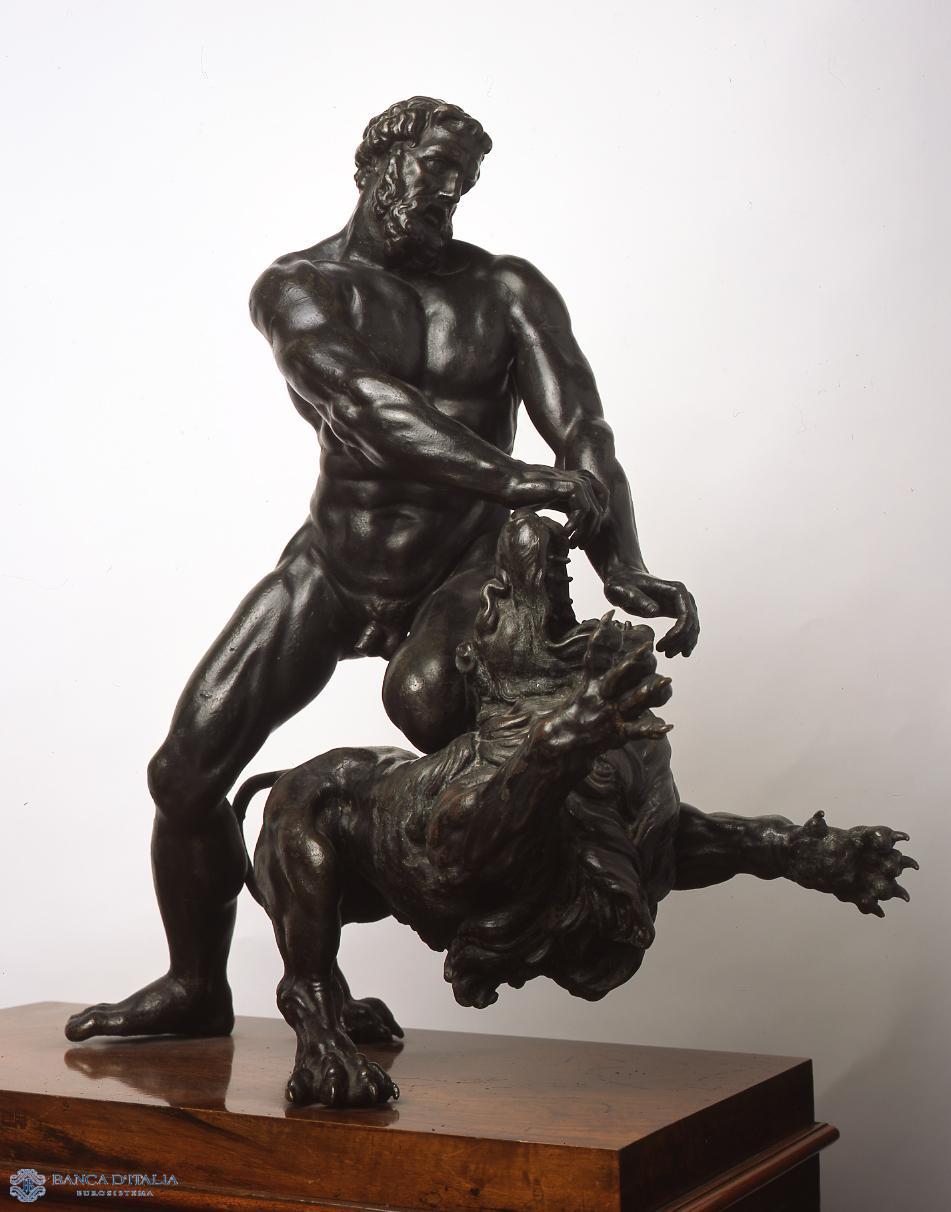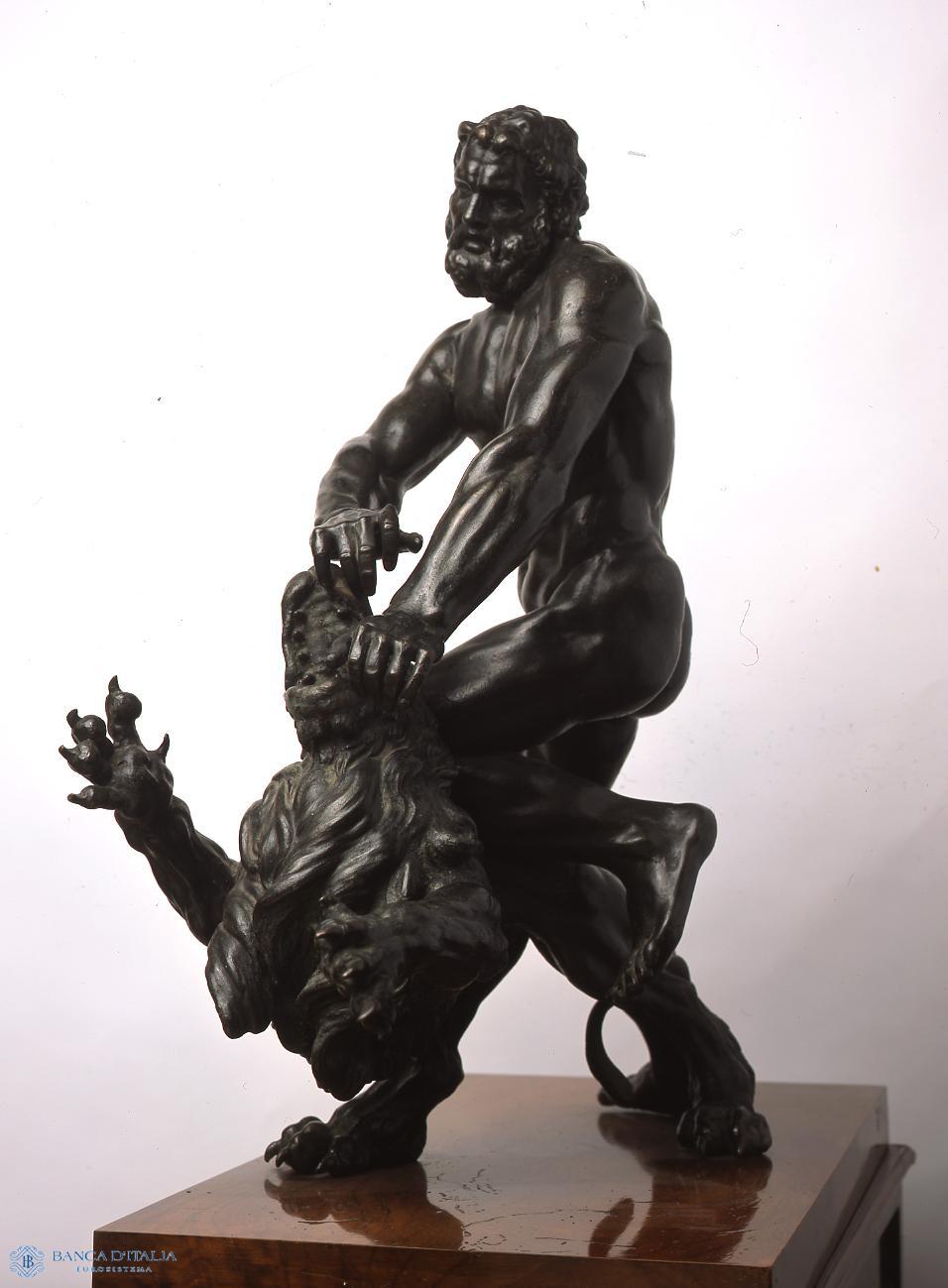The small bronze statue captures Hercules at the moment of greatest physical exertion, his muscles tensed, his left leg bent on the back of the lion and his hands griping its jaws. The beast, overwhelmed by the superhuman strength of the mythical hero, arches its body and raises its front paws.
According to myth, the countryside of Nemea was terrorized by a vicious lion, the offspring of Orthrus and Echidna, that was invincible and its fur impenetrable. The first of Hercules’ twelve labours was to slay this beast, and after a long and bloody fight he managed to take hold of its neck and strangle it. In gratitude, Zeus set the animal among the stars of the zodiac, creating the constellation of Leo.
This theme was already present in Florentine art in the fifteenth century and was used by Giambologna and his workshop for several bronzes sculpted between the second half of the sixteenth and early seventeenth century. The sculptor who crafted the figure was fascinated by the work of Michelangelo and depicted Hercules with bulging muscles, reviving the Neo-Platonic interpretation of the myth: human reason vigorously overcoming the ferocity of the animal world. The figure of the lion recalls, by its pose, one of the most famous Etruscan sculptures known at the time, that of the bronze chimera discovered at Arezzo in 1553.
Bottega del Giambologna, Ercole e il leone nemeo
Hercules Slaying the Nemean Lion
17th century AD
16th century AD
Sculpture
Biblical - Historical - Mythologic

Date
Late 16th - Early 17th century
Material and technique
Bronze
Measurements
Height 67 cm
Compiler
Alessandro Zuccari


